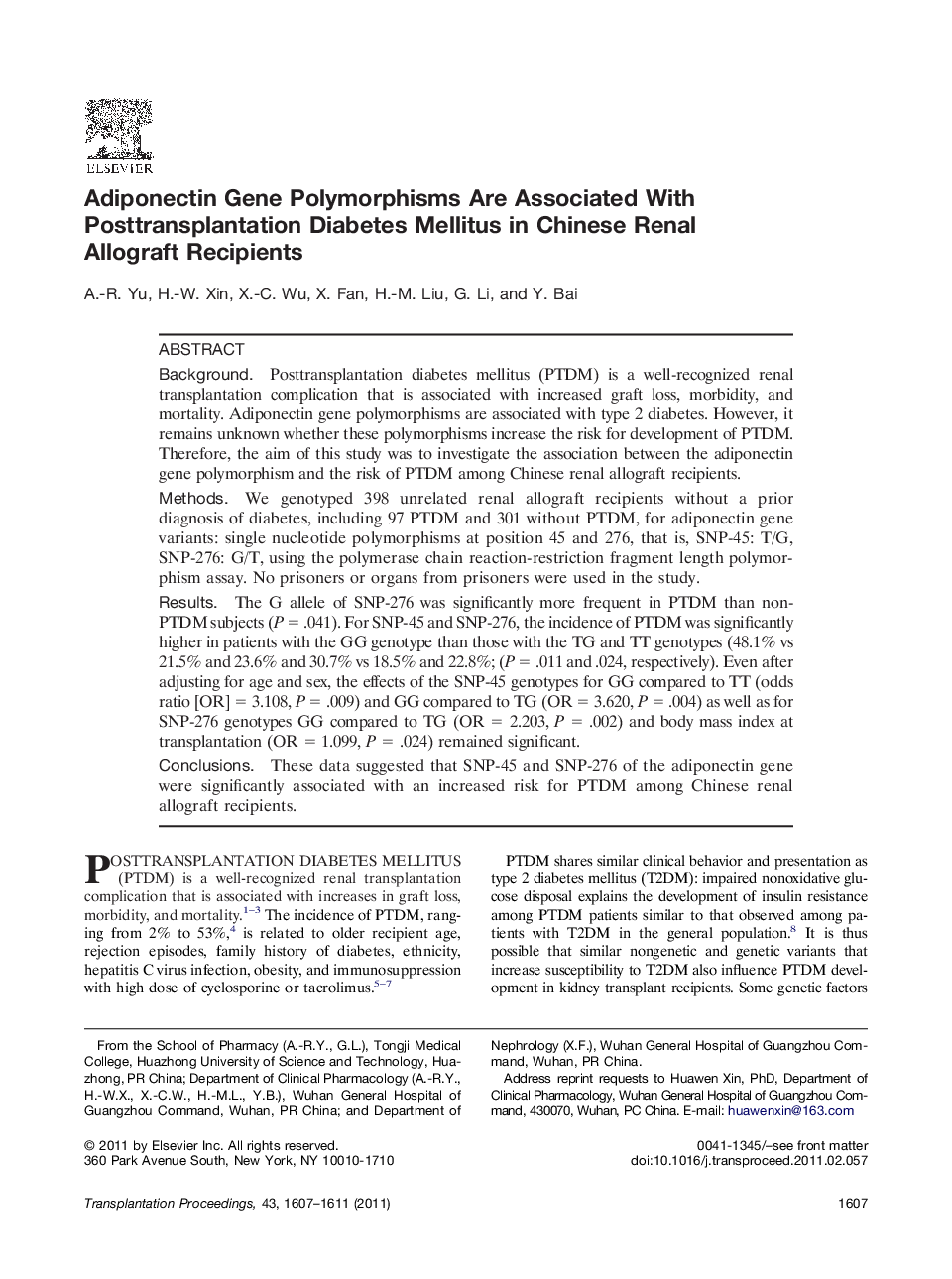| Article ID | Journal | Published Year | Pages | File Type |
|---|---|---|---|---|
| 6249220 | Transplantation Proceedings | 2011 | 5 Pages |
BackgroundPosttransplantation diabetes mellitus (PTDM) is a well-recognized renal transplantation complication that is associated with increased graft loss, morbidity, and mortality. Adiponectin gene polymorphisms are associated with type 2 diabetes. However, it remains unknown whether these polymorphisms increase the risk for development of PTDM. Therefore, the aim of this study was to investigate the association between the adiponectin gene polymorphism and the risk of PTDM among Chinese renal allograft recipients.MethodsWe genotyped 398 unrelated renal allograft recipients without a prior diagnosis of diabetes, including 97 PTDM and 301 without PTDM, for adiponectin gene variants: single nucleotide polymorphisms at position 45 and 276, that is, SNP-45: T/G, SNP-276: G/T, using the polymerase chain reaction-restriction fragment length polymorphism assay. No prisoners or organs from prisoners were used in the study.ResultsThe G allele of SNP-276 was significantly more frequent in PTDM than non-PTDM subjects (P = .041). For SNP-45 and SNP-276, the incidence of PTDM was significantly higher in patients with the GG genotype than those with the TG and TT genotypes (48.1% vs 21.5% and 23.6% and 30.7% vs 18.5% and 22.8%; (P = .011 and .024, respectively). Even after adjusting for age and sex, the effects of the SNP-45 genotypes for GG compared to TT (odds ratio [OR] = 3.108, P = .009) and GG compared to TG (OR = 3.620, P = .004) as well as for SNP-276 genotypes GG compared to TG (OR = 2.203, P = .002) and body mass index at transplantation (OR = 1.099, P = .024) remained significant.ConclusionsThese data suggested that SNP-45 and SNP-276 of the adiponectin gene were significantly associated with an increased risk for PTDM among Chinese renal allograft recipients.
